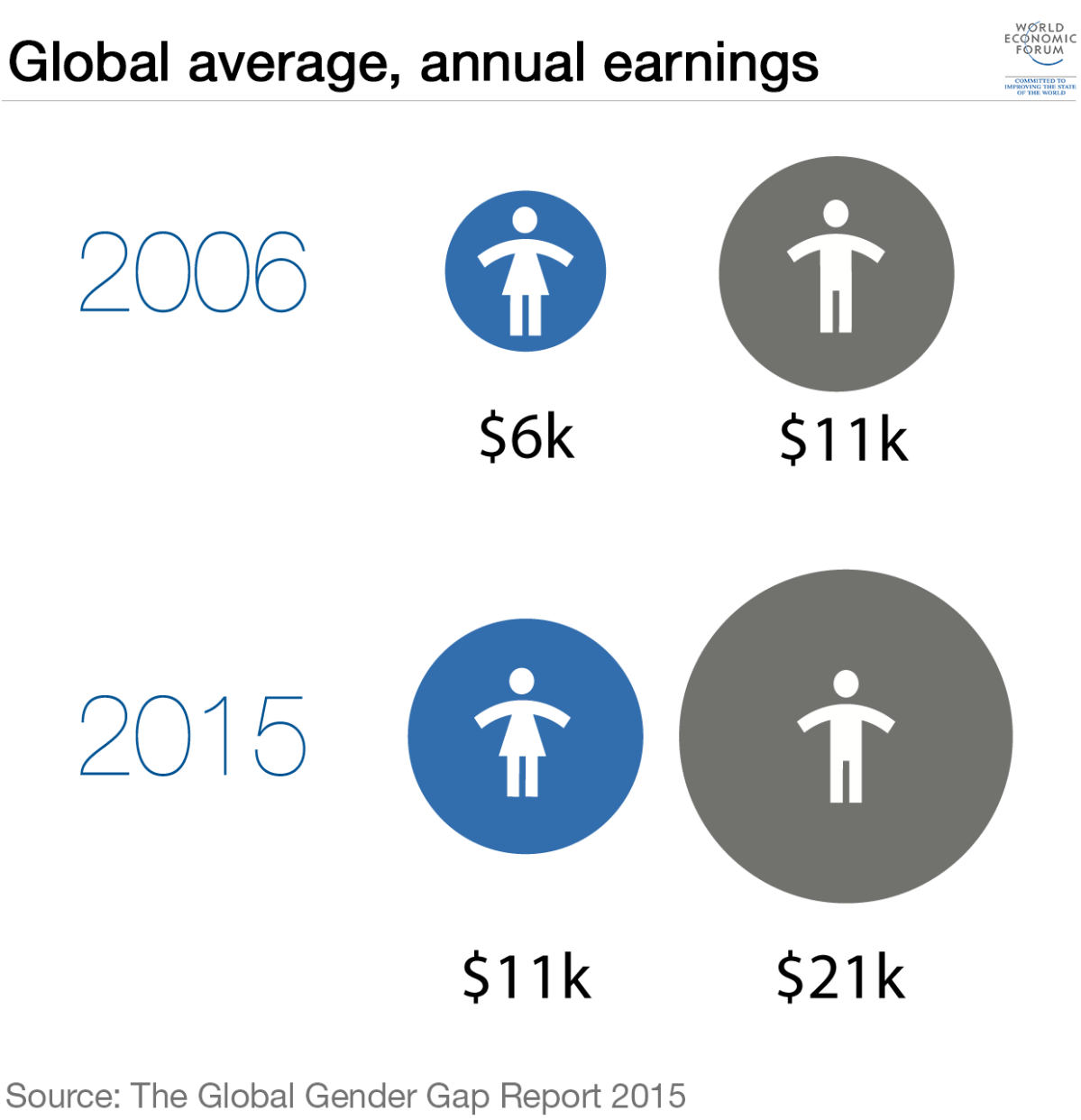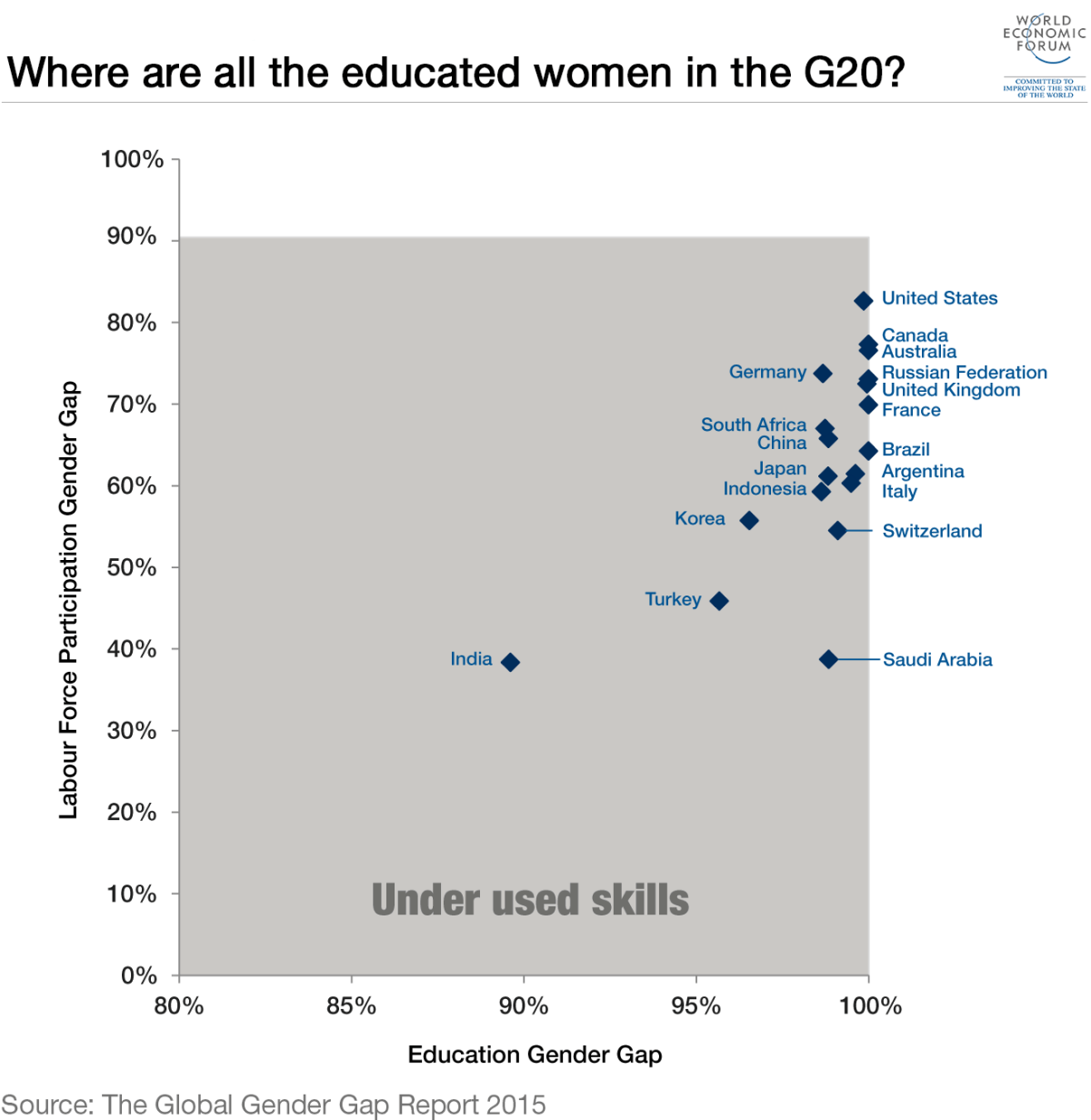Women around the world only have 118 more years to go before they’re paid as much as men, according to the 2015 Global Gender Gap Report.

In Canada, the outlook is a little brighter: we only have 47-and-a-half years to go to reach gender parity (at least if things keep going at the current pace).
Our country currently ranks 30th out of 145 countries examined by the World Economic Forum.
Its 10th annual study looks at the gender gap on the following fronts:
- Economic participation and opportunity (salaries, participation in the workforce and leadership)
- Education (access to basic and higher levels of education)
- Political empowerment (representation in decision-making structures)
- Health and survival (life expectancy and sex ratio at birth)
Canada came in behind Cuba (#29) and the U.S. (#28).
Seventeen European countries beat us (the Nordic nations — Iceland, Finland, Norway and Sweden — took the top four spots; the three least equitable countries were Syria, Pakistan and Yemen).
READ MORE: Iceland announces men-only UN conference on women, gender equality
The Philippines also did better than Canada on the gender equality front, as did Nicaragua, and five African countries — including Rwanda, which came in sixth.
How is Rwanda outperforming 139 countries on gender equality?
“There are quite a few theories for this and certainly one of them is that after the genocide there has been much lower numbers of men who are able and willing to be working. So that has changed the dynamics,” explained Saadia Zahidi of the World Economic Forum.
The 1994 genocide, aimed at the country’s minority Tutsi population, saw more than 1 million people slaughtered by extremist Hutus. The widows who were left behind banded together and demanded power.
They then changed Rwanda’s constitution to require that women hold at least 30 per cent of top political roles. Now the country’s parliament has the highest percentage of women in the world, Zahidi says.

Get weekly money news
Rwanda also performs better than Canada (and many other more developed nations) when it comes to women’s participation in the work force and wage equality.
Canada’s gender equality shortcomings
Globally, women are only now earning what men earned nearly a decade ago: $11,000 annually, on average. Meanwhile, men’s average pay has nearly doubled to $21,000 worldwide.
In Canada, the estimated earned income is $40,000 for men, $35,014 for women, on average.
The wage gap is one of our biggest areas where progress needs to be made, based on the report. The other is the lack of women in leadership roles.
A lack of female representation on the political front also weighed us down, but the findings were based on our previous government. Zahidi thinks we’ll see a boost in next year’s report.
READ MORE: ‘Because it’s 2015’: Trudeau’s gender-equal cabinet makes headlines around world
What needs to happen for us to reach gender parity?
Change doesn’t happen overnight. Nor does it happen in a vacuum, Zahidi says.
“It happens because there are some very pro-active measures in place.”
She believes we should use the Nordic countries, which lead the pack, as an example.
“The Nordics,” she said, “they’ve put in clear, consistent policies that allow families to balance work and family.”
There’s even something that can be learned from Saudi Arabia (which is near the bottom of the list). It’s one of the countries that’s made the most progress in closing the economic gender gap.
“That’s again due to very specific policies by the Minister of Labour to ensure that all of these talented women that are coming out of universities are being integrated into the economy.”
“One of the biggest takeaways is that it does actually take a lot of policy effort.”
Aside from government putting policies in place to help countries achieve better gender parity, businesses also need to evolve with the changing times.
READ MORE: Millennials and the changing world of work
Another recent “Women in the Workplace” study found that gender equality in corporate America is happening so slowly that it could take more than a century for women to have the same number of top executive jobs as men.
The organizations behind the study, including non-profit LeanIn.org, said women still face more barriers to advance up the corporate ladder.
The women surveyed were three more times likely than men to say that they missed out on an assignment, promotion or raise because of their gender.
More than 90 per cent of women and men also said they believed that taking extended family leave would hurt their careers.
With files from The Associated Press








Comments